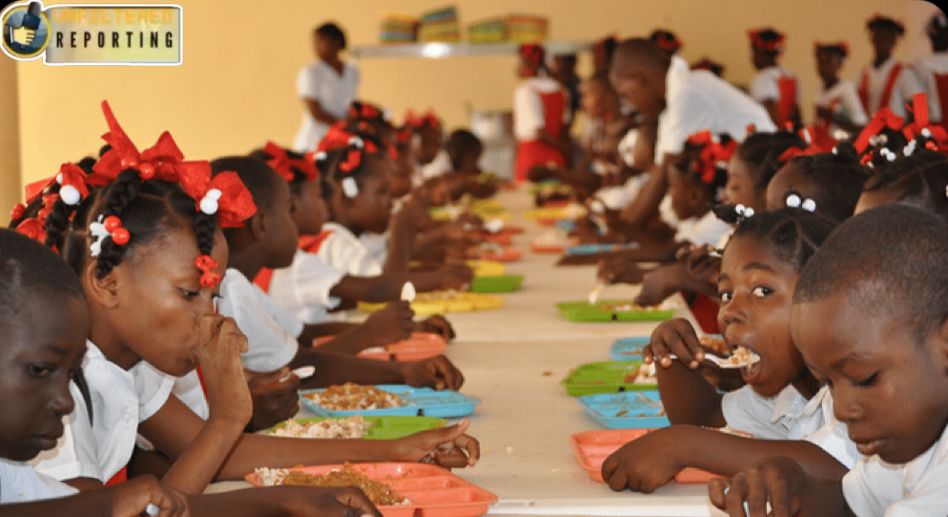FG Targets Feeding 50 Million School Children by 2026

The Federal Government has announced plans to significantly expand the National Home-Grown School Feeding Programme (NHGSFP) to cover about 50 million children by 2026, in what it describes as one of the most ambitious social investment projects in Nigeria’s history.
The expansion will ensure that pupils in all public primary school grades, from Primary 1 to 6, benefit from daily nutritious meals while gradually integrating out-of-school children into the scheme. According to the National Social Investment Programme Agency (NSIPA), the new phase of the programme builds on the Renewed Hope Home-Grown School Feeding Project launched in May 2025, which initially targeted 20 million underserved and out-of-school children. The government explained that the latest initiative will consolidate earlier interventions and extend coverage nationwide to improve school enrolment, retention, and learning outcomes. Officials estimate that the cost per child per meal will range between ₦500 and ₦1,000. To keep expenses under control and maintain food quality, the government is working with smallholder farmers, food aggregators, and suppliers to secure stable pricing and efficient distribution. By sourcing food locally, authorities also aim to stimulate rural economies, support small-scale producers, and create job opportunities for cooks and vendors across the country. Vice President Kashim Shettima recently stated that full implementation of the expanded programme may require an annual budget of about ₦1 trillion, a figure far above the ₦100 billion already allocated in the 2025 budget. Stakeholders and analysts have therefore stressed the importance of timely funding releases, transparency, and effective monitoring to ensure sustainability. The government maintains that the programme is not just about feeding children but also a key part of its broader development strategy. By tackling malnutrition and hunger, the initiative seeks to boost classroom performance, reduce drop-out rates, and offer hope to vulnerable families. However, challenges such as logistics, accountability, and ensuring quality nutrition across Nigeria’s diverse regions remain critical hurdles that must be overcome. If successful, the initiative could mark a turning point in Nigeria’s education and social protection systems, providing long-term benefits for millions of children and communities nationwide.








